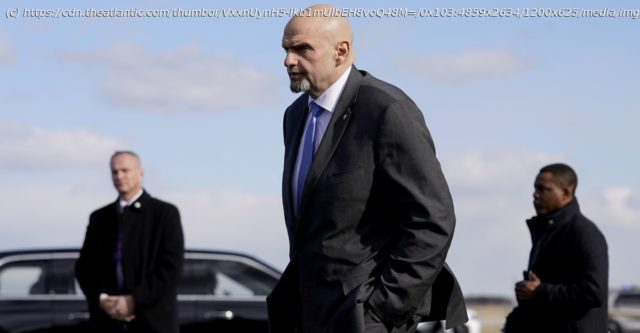The particular challenge of enduring depression as a public figure
Yesterday, Senator John Fetterman, the Pennsylvania Democrat who suffered a stroke at the near-peak of his political campaign last May, announced that he was checking into Walter Reed National Military Medical Center to treat a case of obdurate depression. The discussion since then (at least in the mainstream press, and among his Democratic colleagues) has focused, rightly, on what a sea change this is—how it is now possible, as a national politician, to openly declare your mental suffering and do something about it without fear of calamitous repercussions. The benighted days of secrets and shaming are gone; the experience of Senator Thomas Eagleton, who for 18 days in 1972 was George McGovern’s running mate until it was discovered that he’d undergone electroconvulsive therapy years earlier, is now unthinkable.
In fact, Fetterman’s office could have blamed his depression on his stroke, which is a common cause of depression. Instead, it made a point of saying that Fetterman had had depression in the past.
But I would like to focus on another aspect of this chapter in Fetterman’s life. As a national figure, Fetterman was continuously, relentlessly obligated to perform a certain role—that of a competent, confident politician. More than that, possibly: an accessible, obliging politician. The post–January 6 tightening of security notwithstanding, Congress remains one of the most open, porous environments in the country. It’s a place where reporters roam with almost unconstrained access, corralling senators in hallways, committee rooms, the elevator bank just off the Senate floor.






